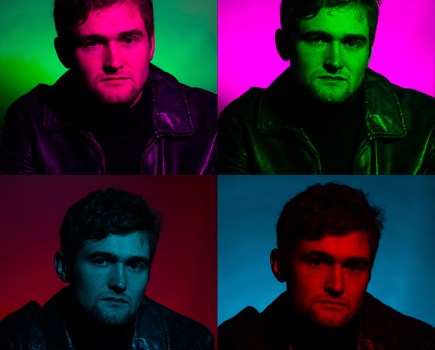‘The photographer was challenged when police noticed him taking a picture as an officer was putting fuel into a police car,’ revealed the Northern Ireland-based Police Ombudsman, in a statement on its Facebook page yesterday.
‘The photographer told Police Ombudsman investigators that an officer asked him to delete the image on the basis that it could be “of use to terrorists”.
When the photographer queried this, he said his camera was taken from him and all the pictures deleted from its memory card.’
Amateur Photographer (AP) has discovered that the incident occurred in March 2010 but has only just come to light after the Police Ombudsman reviewed its case studies, for publication on the organisation’s Twitter and Facebook pages.
It took place before the UK Government overhauled anti-terror laws following years of campaigning by amateur and professional photographers.
The photographer attended a police station after demanding a written record that his images had been deleted.
There he was told that his card would be seized and sent for analysis ‘and a file would then be sent to the Public Prosecution Service to consider a possible prosecution for being in possession of articles likely to be of use to terrorists’.
The photographer was not prosecuted – and he was told he could collect his memory card three weeks later – but the man complained to the Police Ombudsman, alleging that the images had been ‘unlawfully deleted’.
The Police Ombudsman ruled that the officer did not have the legal power to delete images under anti-terror laws in force at the time.
It recommended that the Police Service of Northern Ireland officer be ‘informally disciplined for deleting the pictures’.
The officer has been disciplined, according to the ombudsman.
However, the ombudsman said the police photography unit which analysed the card ‘would not have been responsible for restoring the deleted images before returning the card to the complainant’.
A spokesman for the Police Ombudsman, which is based in Belfast, told AP it would not release the exact location of the incident, to protect the identities of those involved.
The spokesman said that the case file was closed in August 2011.
The Police Ombudsman declined to comment further.
AP understands that the photographer in question has not taken legal action.
A recent investigation by AP revealed that one in four UK police forces refuses to reveal data relating to compensation paid to photographers stopped in public.
In response to a Freedom of Information request, the Police Service of Northern Ireland told AP it had received no such claims relating to incidents taking place in the three years since August 2010.






